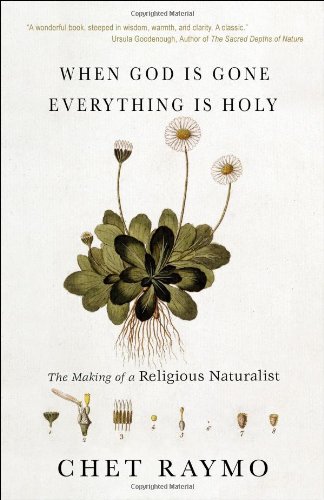Science Works Better than Religion
Religion, magic, science: All assume a reality behind the commonplace that gives meaning and structure to the world, and which might somehow be made to work for our benefit. Thus we have offered prayers, incense, and sacrifice to the gods, cast magical spells and incantations, or built, for example, colossally expensive particle accelerators to probe the inner secrets of atoms and the first moments of the ultra-hot big bang.
To what effect? As for prayer, the gods have been dramatically nonforthcoming, given the vast amount of attention and resources we have proffered on their behalf; they smite us with the same afflictions whether we attend their altars or not-and not a shred of non-anecdotal evidence suggests otherwise. Magic was a preferred way of reaching behind nature's veil for countless generations, but it is now universally recognized as a sham, confined with a wink and a nod to the likes of David Copperfield. Meanwhile, the experimental methods of science have gone from success to success. We send space probes to distant planets and they land on a dime. We reproduce the first moments of the big bang with machines so big they dwarf the largest of the medieval cathedrals.
Notes:
If we think of the particle accelerators, NASA, Universities, and other buildings, then cathedrals to science outnumber those to religion, and that is because science produces results.
Folksonomies: science religion
Taxonomies:
/science (0.652352)
/science/social science/history/medieval history (0.479997)
/religion and spirituality (0.351622)
Keywords:
particle accelerators (0.922511 (positive:0.456912)), expensive particle accelerators (0.829096 (neutral:0.000000)), big bang (0.763621 (neutral:0.000000)), ultra-hot big bang (0.752716 (neutral:0.000000)), science outnumber (0.534335 (neutral:0.000000)), medieval cathedrals (0.464543 (neutral:0.000000)), magical spells (0.459146 (neutral:0.000000)), countless generations (0.455314 (positive:0.516012)), David Copperfield (0.448409 (neutral:0.000000)), inner secrets (0.447009 (neutral:0.000000)), non-anecdotal evidence (0.426182 (neutral:0.000000)), distant planets (0.424824 (negative:-0.201740)), space probes (0.419856 (negative:-0.201740)), experimental methods (0.414796 (neutral:0.000000)), religion (0.283505 (positive:0.456912)), moments (0.260687 (neutral:0.000000)), gods (0.254454 (neutral:0.000000)), commonplace (0.204511 (neutral:0.000000))
Entities:
David Copperfield:Person (0.908466 (neutral:0.000000)), NASA:Organization (0.893051 (neutral:0.000000))
Concepts:
Magic (0.965856): dbpedia | freebase | opencyc
Universe (0.949222): dbpedia | freebase
Big Bang (0.881805): dbpedia | freebase | opencyc | yago
Science (0.874049): dbpedia | freebase | opencyc
Particle accelerator (0.810211): dbpedia | freebase | opencyc
Atom (0.793441): dbpedia | freebase | opencyc
Space probe (0.747929): dbpedia | freebase | opencyc
Ceremonial magic (0.742992): dbpedia | freebase






